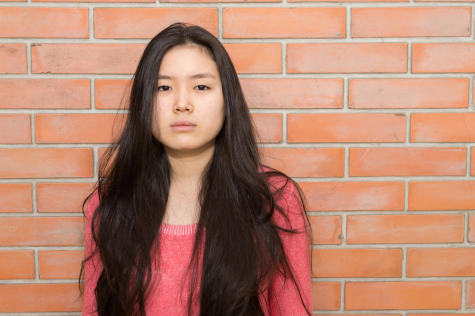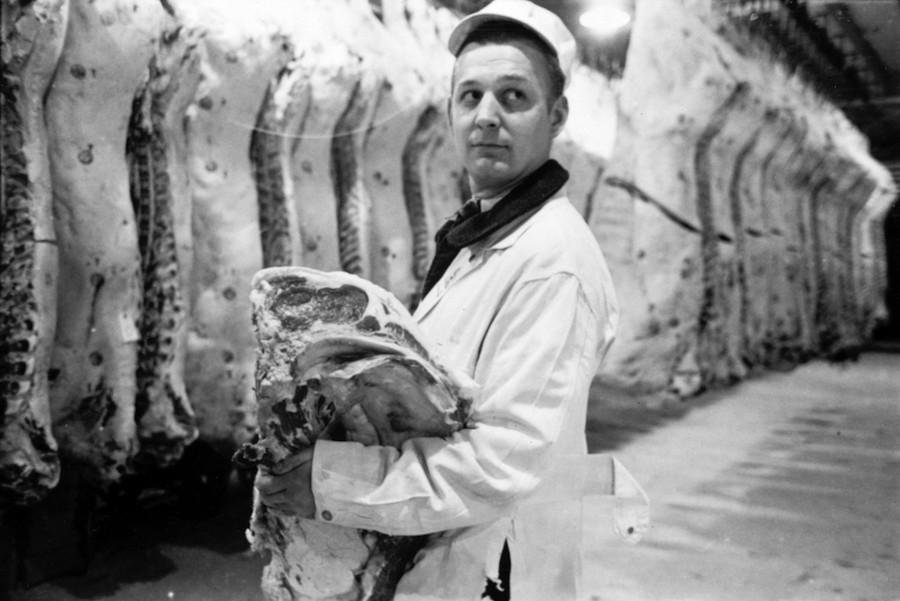On ribs: What if Morrissey is right?
Oh, what glorious, golden brown ribs. I take my first bite off the succulent, hot flesh. Some sauce dribbles down my chin as I sigh and bask in the flavour of the smoked corpse that lies before me. Of course, corpse, death, flesh, and blood are the last things running through my head. Actually, right now, I am thinking about Channing Tatum’s face, laughing about the latest Magic Mike movie trailer with my friends. Looking back, it’s strange how family friendly this scene looks, laughing and making faces and staining the napkins with blood as we wipe our lips. The ribs look like they could’ve belonged to a small child.
Yes, roll your eyes. This dramatization of what should be a cozy Outback dinner sounds like one of those PETA ads on TV.
But if you think about it, maybe PETA and Morrissey and Paul McCartney and all those activists have a point. And the problem about some people’s violent demonstrations of contempt towards vegans is that, well, they don’t really think about it.
I come from a non-traditional Japanese family. Non-traditional in the sense that we’ll often have vegetarian feijoada for dinner and that one of my parents dedicates her life to preaching the benefits of veganism. Literally. My background offered me first hand experience with vegetarianism, and for the past few years, the main reasons behind my own sporadic ventures into this diet were a) my health and b) climate change. Today, studies show that with a balanced diet, humans do not need mammal (or reptile, or fish) flesh to survive, not to mention Monsanto’s status as the real world’s equivalent of Resident Evil’s Umbrella Corp. As for the climate change issue, hopefully you remember that Meatless Mondays presentation made by GIN last year. Bottom line: a decrease in meat consumption could reverse climate change.
But alongside these arguments for a herbivorous diet, veganism is also a question of ethics. Please, if you are one of those people who claim to “thrive off the blood of animals,” try to keep an open mind and detach yourself from the tree-hugging, mantra-singing, and pot-smoking vegan stereotype. I consume meat on a nearly daily basis myself, so we’re in this together.
When our pink meat comes readily frozen and packaged, it is difficult to associate the smell of roast turkey with death. But, let’s face it. Being raised on a farm and systematically killed for the consumption of a superior being must feel pretty terrible, even for a semi-conscious anchovy. And yet, we don’t even flinch at the thought of treating animals that way. “That is how nature works,” some might say, “We just happen to be at the top of the food chain.”
But this issue goes beyond basic sustenance. The existence of foie gras proves that our consumption of animals is also a question of entertainment, culture, and gluttony. And when we consider the ethics behind our treatment of animals, we are faced with questions that delve into the core of morality and the definition of “humanity.” According to Stanford’s Encyclopedia of Philosophy, “a morally considerable being is a being who can be wronged in a morally relevant sense.” Thus, do animals deserve our moral consideration?
A straightforward no would require the recognition of some unique human characteristic which distinguishes us from all other animals and gives us an exclusive moral status, where humans are the only creatures that can be wronged. Some could turn to Kant’s concept of personhood to define such a characteristic. Kant believed that personhood was the quality that made beings valuable and thus eligible for moral consideration. A “person” is defined as a rational being with the ability to act on its own free will (rather than simply by nature) and who can identify itself as “I”. Such beings, according to Kant, are “infinitely above all the other beings on earth.”
This concept is based on a sort of meta-conscience (conscience of conscience), where we have the ability look beyond our impulses, reflect, and choose between acting upon them or not. Thus, the idea of acting morally doesn’t lie in not having the desire to hurt someone, but willingly choosing not to. Therefore, a python choking two kids to death (despite the general un-coolness of such a deed) is amoral, not immoral, for the python acts upon the instinct to feed itself. Its amorality also makes it a non-person. If the notions of ethics and justice are only applicable to persons, and if humans are the only creatures that qualify as persons, then humans are the only creatures that can be treated ethically or unethically.
However, Kant’s idea of personhood fails to address a few of the neediest members of society: babies, those in the later stages of Alzheimers, or other mental illnesses, and the comatose. These humans are unable to think freely, but we still feel a strong sense of moral duty towards them. To make Kant’s argument work, the non-person members of our society can be regrouped into humanity by expanding the definition of personhood and having it apply to every being that has, will have, has had, or could have some sort of rational mind. Nonetheless, pinpointing what exactly makes human lives more “valuable” and eligible for moral consideration is not easy. Most humans do feel some sort of moral obligation towards animals, or at least certain species of animals. Movies such as Free Willy, Marley and Me, and Hachi have done a great job exploiting that fact.
Now, if we were to recognize that yes, animals can be wronged, then to what extent is hurting one unethical? Animal rights activists promote the idea that all lives are equal in worth, regardless of their levels of intellect, and that failing to recognize an animal’s value violates its rights. This view, however, promotes a rather absolutist perspective and condemns any form of pain inflicted upon any animal, even if a starving family’s survival depends on it.
How do we reconcile some animals’ need for survival with the idea that all (sentient) lives are valuable? Utilitarian ethics, in my opinion, offers the best answer. Utilitarian ethics relies on maximizing net happiness. In this case, to determine whether the net happiness is positive, interests can be grouped into three categories in decreasing order of importance: crucial, important, and replaceable interests. A crucial interest is an animal’s interest to survive. An important interest would be an animal’s desire to avoid pain, and a replaceable interest would be one that—you guessed it—could be replaced.
For example, drowning a kitten for fun is a morally objectionable act, as the pleasure that some sadist would take from such a deed is a replaceable interest (he could just have some Ben and Jerry’s instead), while the kitten’s agony and death would go against its crucial interests. Killing a fat seal to feed a starving Inuit family of four touches upon the crucial interests of both parties, but while the seal represents one interest, the survival of the family fulfils the interests of four. Therefore, the act is also morally justified. This perspective is useful because it allows us to balance our priorities. Here, testing vaccines that have the potential to save thousands of lives on animals is morally justified. Meanwhile, testing cosmetics on them is not.
Thus, the utilitarian perspective does not necessarily defend vegetarianism. The killing of a seal, who until then, lived a happy seal life, by a predator who would have died of starvation otherwise, is a morally justifiable act. However, this happens because eating the seal was of the predator’s crucial interest; his survival depended on it. As a middle-class human living in the 21st century, eating a seal is not in my crucial interest. Rather, it is an easily replaceable one.
Today, with the various meat substitutes and vitamin supplements available, meat is no longer an issue of necessity, but of convenience. And because utilitarians consider the strength of interests, rather than to whom they belong (human lives, in this case, are not more valuable than animals’), consuming a cow that was separated from its mother and force fed a myriad of antibiotics for the entirety of its short life is a morally heinous act. And considering the role of the meat industry on climate change (which poses a threat to the wellbeing of all of humanity), from a utilitarian perspective, eating meat is plain evil.
This idea hurts. As creatures of habit, analyzing such a fundamental aspect of our daily lives in this light comes as a great inconvenience. Billions of dollars revolve around the meat industry and the threat of cancelling Thanksgiving turkey is too horrifying to bear. Personally, I cannot see how meat consumption could possibly be justified in moral terms, and as a meat lover, saying this makes me very uncomfortable. I do not see a big pro-animal rights movement taking place anytime soon, but it is important to reflect on the ground our personal ethics stands on.
Bigotry is not a static concept. Perhaps in a hundred years, we’ll be remembered by posterity with the same cynical scoff we reserve for our prejudiced ancestors. “The Founding Fathers were slave owners,” they’ll say, “and the millennials were carnivores.”
Source: http://plato.stanford.edu/

MC Otani is an Editor in Chief of The Talon. Besides writing, her passions include interpretive dance, tulle, and manatees. She hopes to one day become...










